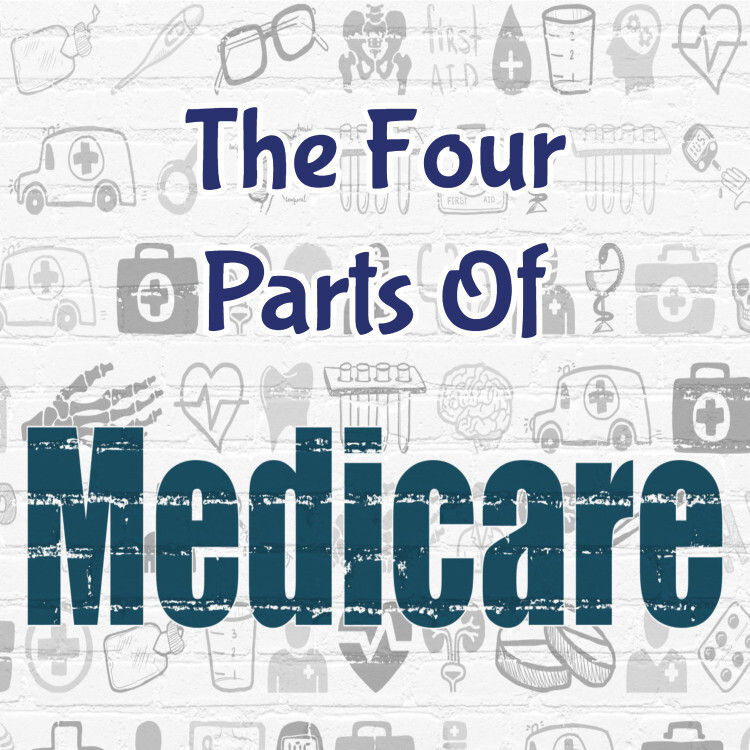
Medicare Health benefits | Tucson, Arizona
How do you find the best Medicare insurance plan?
Choosing the wrong Medicare plan can be costly. If you live in the Tucson region, we recommend working with a licensed and certified Medicare agent. They can help you compare various options and costs.
Find local Medicare Agents in Tucson, Arizona
Use the Certified Medicare Agents Directory to find your best Medicare agent. Click the drop-down menu on the home page and select Arizona. Then click Search Now.
Why Certified Medicare Agents Directory?
Unlike other websites that sell your information to insurance agents looking for "potential leads," you get to control who contacts you. And you won't be contacted by multiple agents.
Medicare Overview
Medicare is a health insurance program for people aged 65 and older (or disabled individuals under 65). The program helps with health care costs, but you must understand that Medicare doesn't cover everything. Original Medicare doesn't have a Maximum Out of Pocket.
How does Medicare work?
With Medicare, you have options for how to get your coverage. Once enrolled, you'll need to decide how to get your Medicare coverage. There are two main ways:
- Original Medicare - Includes Medicare Part A and Part B
- Medicare Advantage - Medicare-approved plan from a private company that offers an alternative to Original Medicare for your health and drug coverage. These "combined" plans include Part A, Part B, and generally Part D.

These are only two parts that you will sign up for at the Social Security Office or Railroad Retirement Board. Medicare parts A and B are the most basic coverage you can get. Private insurance companies offer parts C and D. Eligible beneficiaries include:
- People aged 65 and older.
- Certain young people with disabilities.
- People with end-stage renal disease (ESRD).
Medicare Part A:
- Part A is known as hospital insurance. It includes medical services such as inpatient hospitalizations, care at qualified nursing facilities (SNSF), blood, home health care, and hospice care. You likely qualify if you are 65 or older (or disabled for at least two years). You must be a citizen or permanent resident of the United States. You or your spouse must also have contributed to Medicare for at least ten years (40 quarters). You'll be automatically enrolled in Medicare Part A as soon as you sign up for Social Security income benefits. Still, you can enroll in Medicare without enrolling in Social Security.
- How much is the cost of Part A? Most people get Medicare Part A for free, but you'll pay up to $499 monthly if you must buy Part A. In 2022, the deductible is $1,556 for each benefit period, and there may be more than one benefit period per year.
Medicare Part B:
- Part B covers the costs of doctors and other medical providers. Part B includes, for example, medical services, preventive services, hospital and emergency outpatient services, and other medical services, such as DME (durable medical equipment), chemotherapy, radiation therapy, intermittent or part-time home health care, and rehabilitation services (such as occupational therapy). It may even cover comprehensive dialysis care for people with renal failure. Think of Part B as services related to people, and Part A, as the building where you stay.
- What is the cost of Part B? Medicare beneficiaries pay a monthly premium. The monthly premium for 2022 is $170.10 for most people. However, if you have a high income, you could be subject to IRMAA, increasing your premium.
Medicare Part C:
- Part C is also called Medicare Advantage. Private insurance companies contracted by Medicare offer Medicare Part C plans. They are an alternative to Original Medicare (since this plan covers parts A and B, and sometimes parts D, depending on your plan). It can also include additional benefits that original Medicare doesn't cover. Medicare Advantage plans can include prescription drugs, hearing, vision, dentistry and fitness programs, meals after surgery, and more.
- What is the cost of Part C? The cost of each plan varies. Some plans have no premiums, and others may exceed $100 per month. Varying and complication plan design is a reason to work with an insurance agent specializing in Medicare.
Medicare Part D:
- Part D, or Prescription Drug Plan (PDP). The federal government created them to reduce the retail costs of prescription drugs. Each Part D plan includes a list of covered drugs, known as the drug formulary.
Medicare approves private insurance companies to offer these plans. The formulas indicate what level your medication is. The higher the level, the higher your costs. You also pay the monthly premium for the drug plan, in addition to Medicare.
- How much is the cost of Part D? The monthly premium for Medicare Part D varies by plan, and if you have a higher income, you can pay more due to IRMAA. Part D is an optional plan, but if you qualify and delay registration, you risk paying the penalty for increased insurance premiums if you enroll later.
What is a Medigap plan (Medicare Supplement Insurance), and why should I buy one?
As mentioned in this article, Medicare doesn't cover everything. If you aren't interested in Medicare Advantage, then consider Medigap. (You cannot have both Medigap and Medicare Advantage.)
Medigap is a Medicare Supplement insurance that helps fill the "gaps" in original Medicare and is sold by private companies. Some Medigap plans also offer insurance coverage for services that Original Medicare doesn't cover, such as medical care when traveling outside the U.S.
Suppose you have Original Medicare and buy a Medigap plan. In that case, Medicare pays its share of the Medicare-approved amount for covered health care costs. That's when your Medigap plan pays its share. Each Medicare Supplement insurance plan offers different basic benefits. Still, each program must include the same standard basic benefits, regardless of the insurance company and location.
Medicare supplement insurance plans don't cover vision, dental care, long-term care, or hearing aids.
Medicare Supplement Plans Options:
- Plan F - The benefits of Plan F and Medigap Plan G are almost identical, except for the Medicare Part B deductible. The Medigap F Plan covers the Medicare Part B deductible, but Plan G does not. Many agents and brokers are promoting Plan G due to the Plan F discontinuation in the year 2020. If you're still on Plan F, you can continue to use that plan.
- Plan G - Plan G covers everything that Plan F covers except for the Part B deductible. Plan G is the best plan for newly eligible enrollees.
- Medicare Part A coinsurance and hospital costs can reach up to 365 additional days after Medicare benefits run out.
- Medicare Part B coinsurance or co-payment
- First three pints of blood
- Part A hospice care coinsurance or co-payment
- Medicare Part A deductible
- Medicare Part B excess charges
- Foreign travel emergency coverage (80%, up to plan limits)
- Plan N - Medigap Plan N costs less than plans F and G and offers higher benefits than plans A, B, K, L, and M. Plan N doesn't give you any copay if you go to the hospital. In addition, you won't receive any additional payment if you need blood. There are also no other payments or coinsurance for hospice care. And there's no copay or coinsurance for qualified nursing. Benefits:
- You'll pay the Part B deductible.
- Pay a $20 copay to see a medical provider, such as a doctor.
- You'll pay $50 if you need emergency care and for non-immediate admission to the hospital.
- You'll pay any excess doctor charges for doctors that don't accept "Medicare Assignment."
Insurance plans that aren't Medigap Includes:
- Medicare Advantage Plans (like an HMO, PPO, or Private Fee-for-Service Plan)
- Medicare Prescription Drug Plans
- Medicaid
- Employer or union plans, including the Federal Employees Health Benefits Program (FEHBP)
- Tricare
- Veterans' benefits
- Long-term care insurance policies
- Indian Health Service, Tribal, and Urban Indian Health plans
How To Enroll In Medicare
For some people, enrollment in Medicare is automatic, while for others, it may depend on when and how they're eligible.
Below are the ways to enroll in Medicare Part A and Medicare Part B.
- Enroll online at www.socialsecurity.gov.
- You can enroll by calling the Social Security National 800 number (1-800-772-1213) Monday through Friday between 8:00 a.m. and 7:00 p.m.
- You can also enroll by visiting the office of your local Social Security office.
If you worked on a railroad, sign up for Medicare by contacting the Railroad Retirement Board (RRB) at 1-877-772-5772 (TTY user 1-312-751-4701). They are open Monday through Friday from 9 a.m. to 3:30 p.m. to speak with an RRB representative.
Enrollment Periods to Remember:
Medicare General Enrollment Period
Suppose you didn't enroll during the IEP when you were first eligible. In that case, you could do so during the general enrollment period. The general registration period for Original Medicare is January 1 through March 31 of each year.
Remember that you will be subject to a penalty if you don't have "creditable coverage" and don't enroll when you are first eligible.
Medicare Special Enrollment Period
Suppose you're already covered by a "creditable" group health insurance through an employer or union if you're eligible for the first time. In that case, you can choose not to enroll in Medicare Part B. You can enroll at any time (during a Special Enrollment Period (SEP) ) if you decide to switch from group coverage to Medicare or lose your group insurance.
Your eight-month special enrollment period begins when your employment ends, or your group health insurance ends, whichever comes first. If you enroll during a SEP, you usually don't have to pay the penalty for late registrations. The special registration period does not apply if you are eligible for Medicare because you have ESRD.
Medicare Advantage plan enrollment
You can enroll in a Medicare Advantage plan during two main enrollment periods, the first Election Period and the Annual Election Period. There are also "Special Election Periods" when you can enroll.
- Initial Coverage Election Period: Most beneficiaries are initially eligible to enroll in a Medicare Advantage plan during the Initial Coverage Election Period. Unless you delay enrollment in Medicare Part B, this registration period will co-occur as your Initial Enrollment Period (IEP). It starts three months before you have both Medicare Part A and Part B and ends on the following dates, which fall later:
a. The last day of the month before you have both Medicare Part A and Part B, or
b.The last day of your Medicare Part B Initial Enrollment Period.
- Annual Election Period: You can also add, remove, or change your Medicare Advantage plan during the annual election period, which runs from October 15 to December 7. During this time, you can:
- Switch from Original Medicare to a Medicare Advantage plan, and vice versa.
- Switch from one Medicare Advantage plan to a different one.
- Switch from a Medicare Advantage plan without prescription drug coverage to a Medicare Advantage plan that covers prescription drugs and vice versa.
Medicare Advantage Open Enrollment Period
The open enrollment period for Medicare Advantage is a limited annual registration period. It runs every year from January 1 to 31st. During this time, you can:
- Switch Medicare Advantage plans if you already have a Medicare Advantage plan.
- Disenroll from your Medicare Advantage plan and return to Original Medicare.
Enrollment Period for Medicare Part D:
Your initial registration period for Part D coincides with your first enrollment period in Medicare Part B (the seven-month period that begins three months before you become eligible for Part B is the month in which you are qualified and ends three months later). You can enroll in a stand-alone Medicare prescription drug plan during your initial Part D enrollment period. You are eligible for prescription drug coverage if:
- If your health insurance plan covers the place where you live.
- You have Medicare Part A or Part B.
However, suppose you don't enroll in prescription drug coverage when you're eligible for Part D for the first time. You may have to pay applicable dues for late registration if you seek an exemption from qualified prescription drug coverage for 63 or more consecutive days.
Medicare Part D Annual Election Period:
Suppose you didn't sign up for prescription drug coverage during IEP. In that case, you can sign up for prescription drug coverage during the Annual Election Period (AEP). It is held every year from October 15 to December 7.
During AEP, you can:
- Enroll in a Medicare prescription drug plan.
- Drop a Medicare prescription drug plan.
- Enroll in a Medicare Advantage plan with prescription drug coverage.
- Change from a Medicare Advantage plan that doesn't include prescription drug coverage to a Medicare Advantage plan that does (and vice versa)
Medicare Supplement insurance plans enrollment
The best time to sign up for Medicare Supplement Insurance (Medigap) is during your individual Medigap open enrollment period. It is applicable during the six-month period that begins on the first day of the month you turn 65 and have Medicare Part B. This is because the insurance company cannot ask you any questions about your health during the Medigap enrollment period.
However, you can enroll in a Medigap plan at any time. But the insurance company doesn't have to accept you into their program if you have health conditions and do not enroll during the enrollment period or another "Guaranteed Issue" period.
How does a licensed broker help you find the best choices for Medicare plans?
The types of Medicare plans and the enrollment deadlines can be pretty confusing to understand. Here are the reasons you should work with an agent or broker when looking for Medicare plans:
- In-depth knowledge: There are numerous combinations of plans, benefits, rules, and exceptions that only Medicare agents can explain. They know how to help you get the best value for money. Medicare brokers must pass several classes and tests each year.
- They represent numerous insurance companies: they can offer you fare options from different carriers, providing you to choose the one that's right for you. They offer a wide variety of plans with unbiased recommendations.
- Medical underwriting: When you take out a Medicare supplemental insurance policy, Medicare brokers can help you determine if you meet insurance requirements. You won't waste time applying for plans that preclude you based on your health status.
- Brokers listen and understand your insurance coverage requirements. They research the market to find the right policy. An agent can save you money by comparing plans with all carriers.
- They can also assist and support you in completing the forms for your application and preparing claims.
Things to consider when choosing a broker
- License: Check the license status with your state's insurance department to ensure you're dealing with an approved broker. The license must also contain the license number. You can visit this website to check your broker's license: https://content.naic.org/state-insurance-departments.
- Customer service: Choose a representative or broker with excellent customer service. Ask family and friends for recommendations. During an interview with a representative or broker, ask about the types of plans they are doing and the type of customer they usually accept. Check their reviews on this site if they have any.
- Experience: Choose a broker with solid expertise selling Medicare plans in your state. A knowledgeable and experienced Medicare agent can help you choose the best Medicare plan to meet your needs.
Which type of agent or broker is right for you?
- Independent agent When you work with an independent Medicare insurance agent, you can choose from various policies. Independent representatives and brokers provide unbiased advice.
- Captive These agents can only sell you plans from the insurance company they represent. Captive agents are often experts in all the options offered by their organization. However, you can't get information about plans from other Medicare insurance companies.
Advantages of working with an independent Medicare Agent
- Time savings: Brokers make sure you don't waste your time.
- Advice: Licensed professional insurance brokers can provide unbiased advice to ensure you choose the best offer for your specific needs. Depending on your needs and budget, agents can help you decide what level of coverage is best for you. They do it daily. They can advise you on problems based on experience. When you contact a representative, they will offer their services to you without any obligation to sign up.
- Policy comparison: With a wide variety of insurance policies on the market, choosing the best policy for your specific needs and current condition can be confusing. The broker's job is to save you time by comparing plans and making a recommendation.
- Choice of options: Brokers generally know the options and can help you solve them faster than you can on your own.
Medicare agents help narrow down your options when applying for health insurance. They will ask you about your health goals and offer options and solutions to help you achieve your goals within your budget. They get paid when they enroll you, so let your broker complete the application!
Do I need a Medicare agent near me?
As long as the Medicare agent is licensed to sell Medicare in your state, you don't have to work with a representative who lives nearby. An agent from another state provides the same service. However, it's often better to work with a local agent because they might know more about local plans than national agencies.
Even if you work with a local insurance agent, it's easy and convenient to work with them by phone or online. You don't have to travel to see an agent or have them come to your home.
Thanks to technology, you don't have to visit a local office to meet with an agent.
Do you need a reliable broker now? Click on this link, and we'll help you find a professional representative who can help: https://certifiedmedicareagents.com/home.






